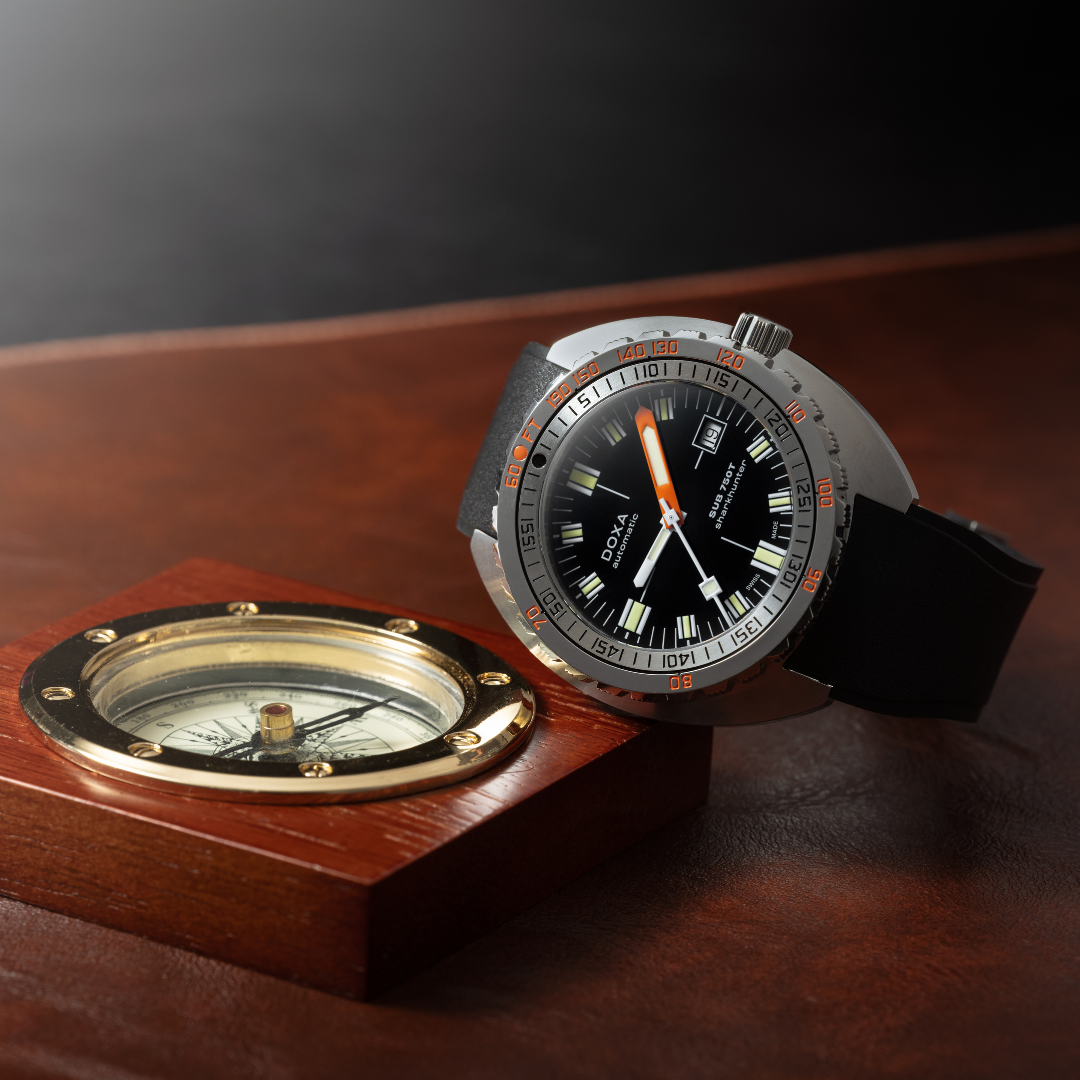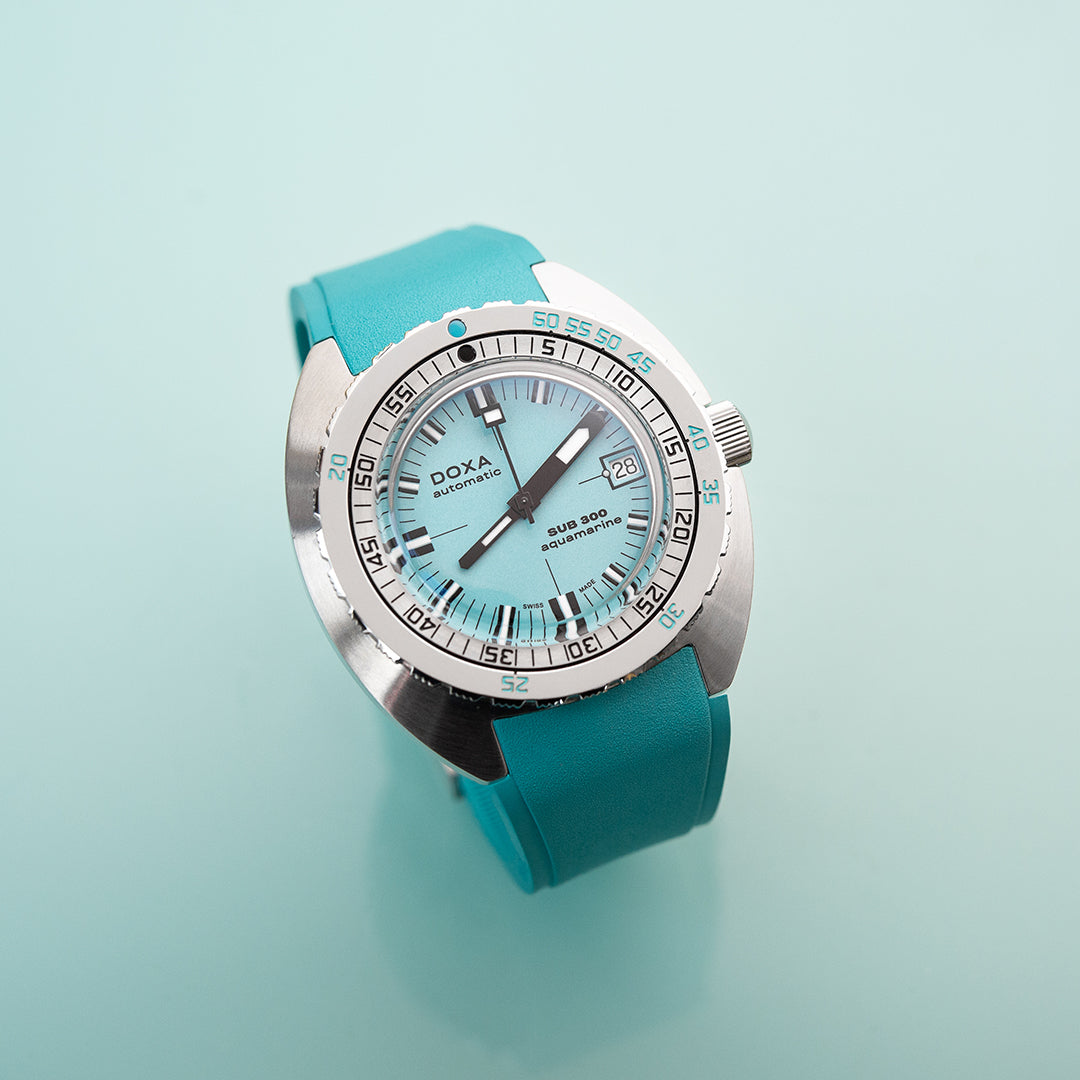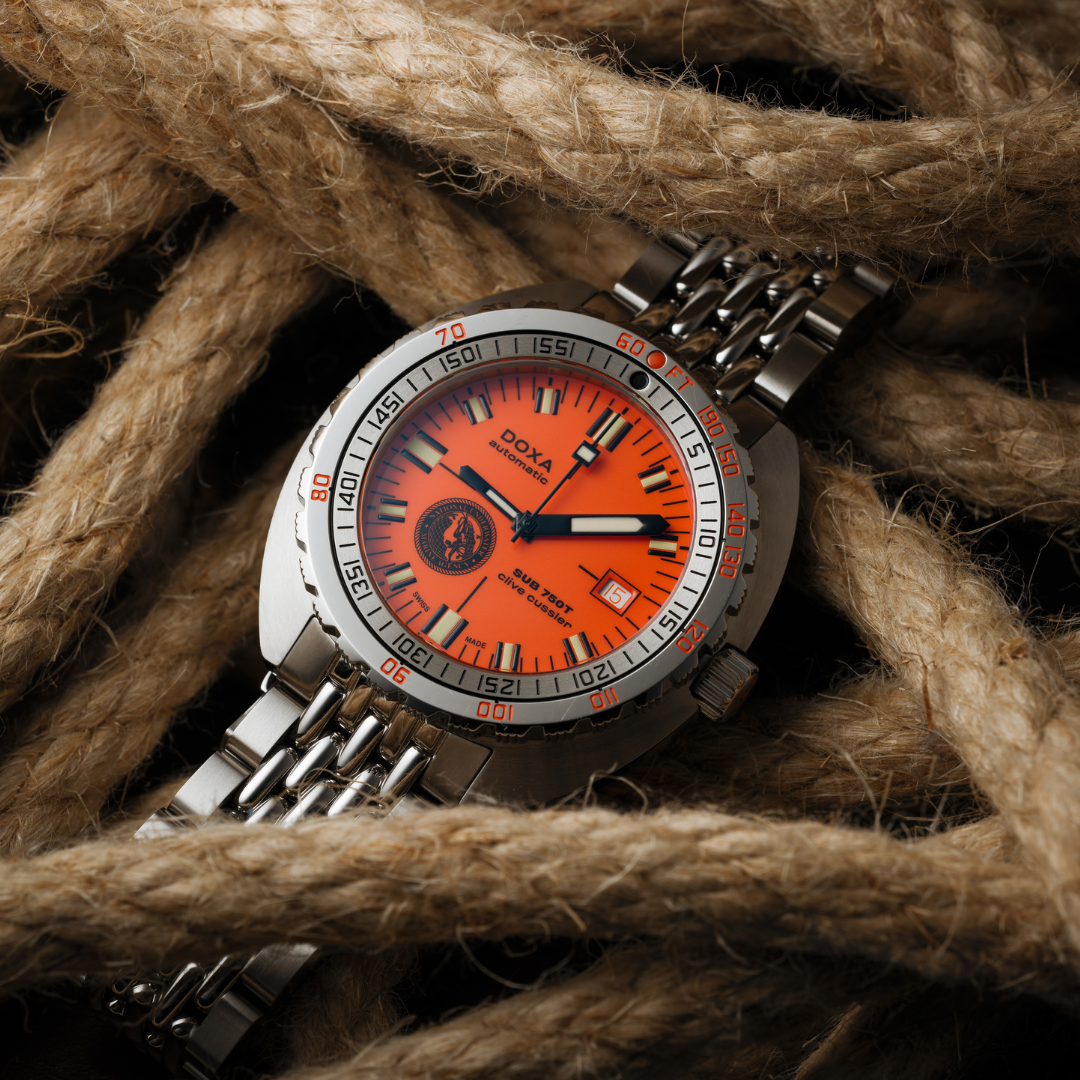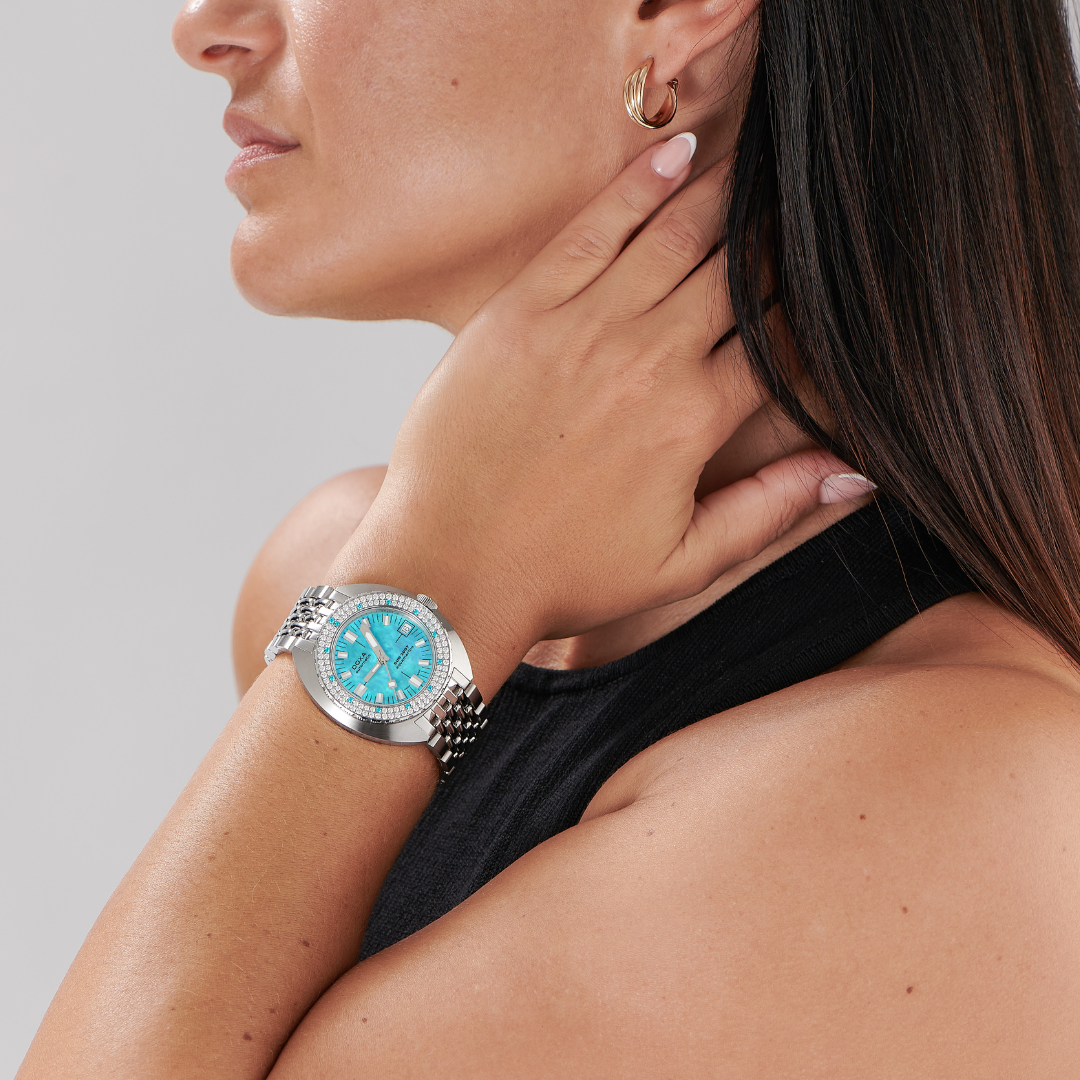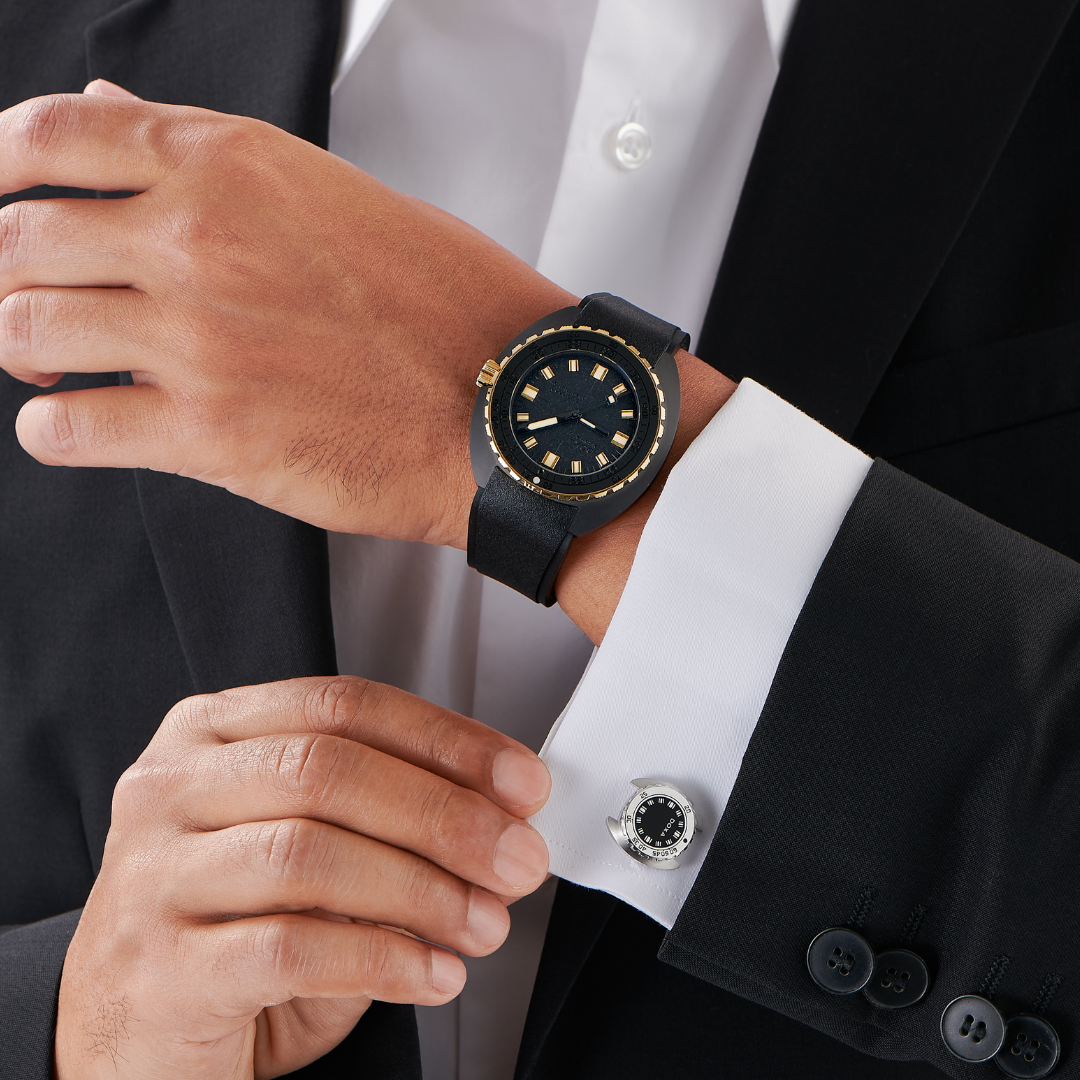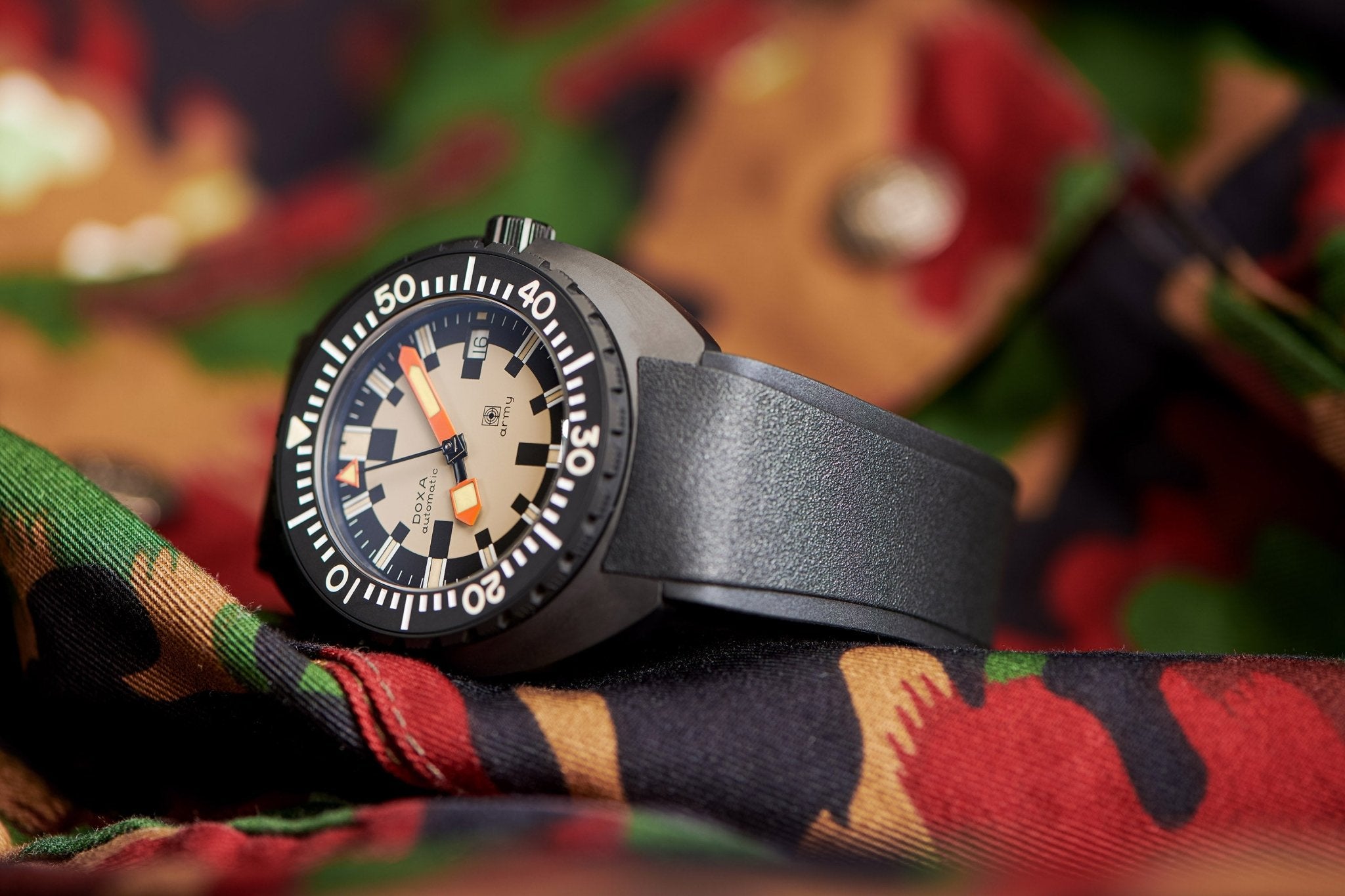
DOXA Army: the legend resurfaces
The legendary diver’s watch has never been reissued. Fifty years after its original launch, the DOXA Army is once again reporting for duty and this highly sought-after collectors' watch will be available in a limited edition of just 100 pieces.

The DOXA Army has been worn by many, but it is remembered by only a few. Nevertheless, the DOXA Army is one of the foundational pieces in the history of the brand and, more widely, one of the tool watches worn by many professionals.
Tracing the origins of a military collaboration
The DOXA Army is a timepiece like no other. When it was launched in 1969, it marked a turning point. By then, professional diving was steeped in history, but scientific diving and recreational diving were as yet emerging disciplines. And for both these disciplines, the professional instruments used by the military were not accessible as they were too expensive, or simply not distributed.
DOXA wanted to change that. Urs Eschle, head of product development, wanted to create a diver’s watch which could be bought and worn, and whose performance would cover all the diving conditions which were opening up back in the 1960s and 70s. And Eschle knew how to build a reliable team around him to achieve this aim. He recruited a team of professionals, including Claude Wesly, already a legend thanks to his missions with Jacques-Yves Cousteau. Together, they created the SUB 300 and SUB 300T.

What is the connection with the Army model now being unveiled? Recognition of the SUB by the armed forces: in 1968, the DOXA SUBs became the "Official Watches" of the Swiss Army Diving unit, created just three years earlier. This was a huge accolade and became a far-reaching partnership, as the Swiss divers were systematically issued with a SUB 300T Professional until 1975.

Photo credit: Analog:Shift
A great idea, but...
The problem was that this diving unit was working in the shadows, out of the public eye. A total of 146 of these watches had been issued and some, in fact, had been returned to this elite commando unit at the end of the mission or when the divers retired. But how to find these heroes who had completed top secret diving operations between 1969 and 1975?
The current DOXA team accomplished the remarkable feat of accurately tracing 128 of these 146 timepieces, by cross-referencing records from the army with those from production. Now all that remained was to find the divers! This would be no ordinary mission: these frogmen working in the shadows had returned, anonymously, to civil duties, or had kept a low profile pursuing their career in the military. And the youngest of them would now be nearly 70 years old...

After extensive investigations, DOXA managed to find around a dozen. A chapter of history was uncovered. For the first time – and now that this commando unit has been officially recognised by Switzerland – these extreme divers have spoken about their missions, their fast-paced life and the DOXA on their wrist. A rare watch, and one that was jealously guarded. But DOXA has, potentially, the most important of the lot: stamped “5004”, this is the very first DOXA issued to the Swiss unit of combat divers. In other words, the very first edition in the series.

Certificate officially recognising the combat divers as full members of the Swiss Army
In the Army now
DOXA capitalised on these solid foundations to develop its special relationship with the Swiss Army. A new model was designed. No longer the famous SUB, but a piece created specially for them. Its name: Army. Simple and efficient, like the piece itself. That is, in appearance at least; in reality, the DOXA Army hides its innovations well.
One such example is its black case. What seems quite commonplace to us nowadays was not the case 50 years ago, in an era when PVD and CVD did not exist. So, to improve the stealth of its Army model, DOXA had developed an ingenious process to coat the case, which was rather pioneering for watchmaking at that time: using steel blackened using a oxidation process. The colour is black and, most importantly, antireflective, enabling the military to evade detection by solar reflection. DOXA is also probably the first diver’s watch in the world to have developed such a treatment to make its cases more covert.

A vintage base, a modern reinterpretation
Today, the collectors' edition of the new DOXA Army draws its inspiration from the legendary innovations and design of the period, but it has been propelled into the 21st century thanks to half a century of innovation.
The matt black livery of the era is now no longer reproduced with oxidised steel, but with matt black ceramic. The original look has been recreated, but the new timepiece is more resistant and lightweight. DOXA has also extended the use of this state-of-the-art material to the unidirectional bezel, which is also made of ceramic.


As for the hesalite crystal, this has been replaced with sapphire crystal which is more resistant, denser, antireflective and practically scratchproof. This resistance on the dial side is also matched on the case back, where the original steel case back has now been replaced with a titanium case back: this is also lighter, more resistant and practically scratchproof.
DOXA has applied the same requirements to the strap, an essential piece of kit for a serviceman whose watch must always be on his wrist. In 2022, DOXA has therefore chosen a black FKM rubber strap for its Army, to retain the covert nature of the piece. And, like any tried-and-tested military watch, it is supplied with a second NATO strap.

On the dial side, the original design has been preserved, but the 1960s and 70s style luminescent indices are now in Super-LumiNova, for a brighter and more long-lasting effect. But it is probably the movement which has undergone the most spectacular transformation. The original hand-wound mechanical movement has now become self-winding. Formerly low frequency, it is now high frequency, with a beat rate of 28,800 VpH. Last but not least, it is certified by the Official Swiss Chronometer Testing Institute (COSC). The new DOXA Army is therefore officially a chronometer, a designation afforded to most advanced timepieces representing the epitome of Swiss Made precision.
Today, over 50 years after its original launch, DOXA is reissuing its iconic DOXA Army model in a limited edition of just 100 pieces, in collaboration with its Anglo-American partner, Watches of Switzerland.


